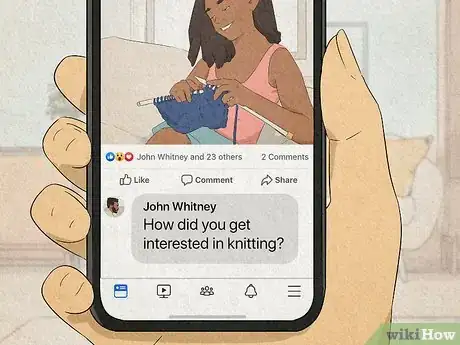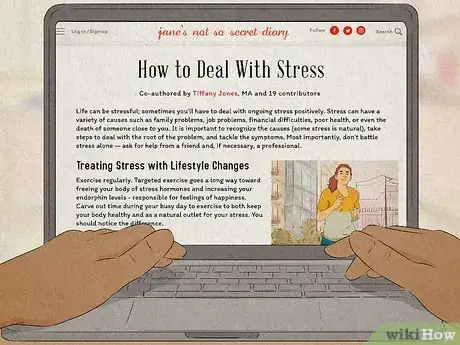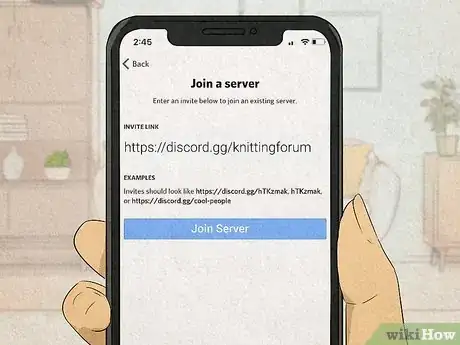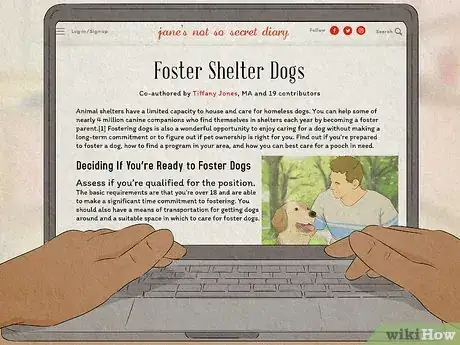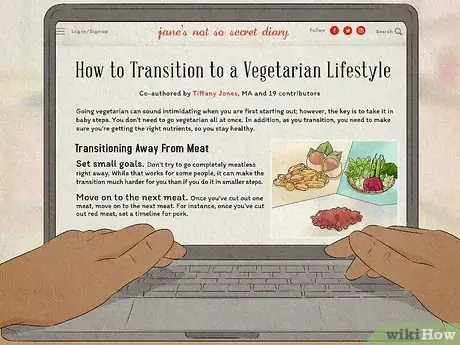This article was co-authored by Christy Irvine, PhD and by wikiHow staff writer, Megaera Lorenz, PhD. Dr. Christy Irvine is a Licensed Clinical Psychologist and the owner of her private practice out of Portland, Oregon. With over 10 years of experience, she specializes in individual and couples therapy using various techniques including Emotionally Focused Therapy (EFT), Acceptance and Commitment Therapy (ACT), Interpersonal-Process Therapy, and Cognitive Processing Therapy (CPT). Dr. Irvine holds a B.A. in Psychology from Whitman College and a Ph.D. in Clinical Psychology from The University of Connecticut.
There are 9 references cited in this article, which can be found at the bottom of the page.
This article has been viewed 11,037 times.
In 1936, Dale Carnegie published his famous book, How to Win Friends and Influence People. While the world has changed a lot since then, his basic advice still holds true—be friendly, be honest, and show genuine interest in others. Although interactions look a little different in online from the way they do in person, you can still build genuine connections with others by following these same common-sense rules.
Steps
Behave respectfully online.
-
It’s easy to forget that you’re talking to real people online. But just like in face-to-face conversations, your words can have a real impact on the person you’re talking to—either positive or negative! To make a good impression, follow the same basic social rules that you would in person. For example:[1] X Research source
- Avoid insulting people or being rude, even if you don’t agree with them.
- Don’t ask overly personal questions.
- Steer clear of saying anything that you wouldn’t say to somebody face-to-face.
- Use courteous language, like “Please,” “Thank you,” and “Excuse me.”
Approach people with a friendly and outgoing attitude.
-
Don’t be afraid to reach out to others! If you encounter someone you like online, whether it’s in the comments section of your Instagram feed or on a discussion forum where you like to hang out, don’t be shy about saying hello and telling them you appreciate them. Offer a sincere compliment, ask a question, or let them know how much their content means to you.[2] X Trustworthy Source Harvard Business Review Online and print journal covering topics related to business management practices Go to source
- For example, you might say something like, “Those cookies you posted look gorgeous! Would you mind sharing the recipe?” or “Thanks so much for sharing your story. It really helped me feel better to realize that someone else out there has had similar experiences to mine!”
- Likewise, if someone reaches out to you, be ready to engage with them in a friendly way. That might mean answering questions, responding to comments, or just saying “Thank you!” if someone gives you a compliment.
- Be cautious about offering constructive criticism unless the other person clearly wants it. Even if your intentions are kind, critiques aren’t always welcome.
Show genuine interest in other people.
-
Asking questions is a great way to make a connection. When you strike up a conversation online, don’t make it all about you. Invite them to share their knowledge or talk about things that interest them. Break the ice with a friendly question, like, “How did you get interested in knitting?” or “What’s your favorite program for making digital art?”[3] X Expert Source

Licensed Clinical Psychologist Expert Interview. 9 April 2021. [4] X Research source- Unless you’re doing a video chat, you can’t rely on things like friendly smiles and eye contact to show your interest during online conversations. Instead, use your words to show that you care what the other person has to say.
- For instance, you could respond by saying things like, “Oh wow, that’s so cool!” or “Thank you for sharing that with me, I learned something new today.”
Avoid getting into online arguments.
-
Online arguments seldom end with anyone changing their mind. If somebody says something you don’t agree with, stop and think before you engage. Is it really worth trying to correct them or talk them around to your point of view?[5] X Research source If so, think about ways to talk to them about it in a friendly, respectful way instead of being confrontational and argumentative.
- For instance, if somebody says something you think is false, you might say, “I’ve heard that, too, but I’m not sure it’s true. Check out this article I found, it really presents the evidence in a clear and interesting way.”
- Resist the temptation to engage with trolls and online bullies. You’re not obligated to talk to people who are intentionally rude or disrespectful.[6] X Trustworthy Source Harvard Business Review Online and print journal covering topics related to business management practices Go to source
Approach others from a position of common ground.
-
Look for things you agree on before trying to change someone’s mind. If you’re trying to influence someone to adopt a new idea or viewpoint, don’t start with a confrontation. Instead, start with the attitude that you’re in this together.[7] X Expert Source

Licensed Clinical Psychologist Expert Interview. 9 April 2021. From there, it will be much easier to explore perspectives that they might be less comfortable with.[8] X Research source- For instance, if you want to convince someone to try out more plant-based foods, don’t start by telling them they shouldn’t eat meat. Instead, try something like, “Oh yeah, I used to really love beef burgers, too! I just wish they were healthier. I had to do a lot of searching, but I finally found these amazing soy patties that taste even better to me.”
Own up to your mistakes.
-
If you mess up, don’t try to delete the evidence. Instead, admit what happened and offer a sincere apology. Assure others that you’ll do your best not to repeat your mistake in the future.[9] X Expert Source

Licensed Clinical Psychologist Expert Interview. 9 April 2021. [10] X Research source- For instance, if you get into an argument online and insult someone in the heat of the moment, say something like, “Hey, I was out of line there. I’m sorry I said those things. Next time, I’ll just step away from the keyboard for a bit and cool off if I feel myself getting that worked up.”
Present yourself in an honest way.
-
But be careful not to overshare. Being honest is a good way to build genuine connections with others. If you pretend to be someone else online, the truth is likely to come out eventually—and then it will be much harder for people to trust you.[11] X Research source On the other hand, don’t give out more information than you’re comfortable with. Be safe and use common sense.[12] X Expert Source

Licensed Clinical Psychologist Expert Interview. 9 April 2021.- For instance, if you’re a lifestyle blogger, don’t fall into the trap of trying to make your life look picture perfect all the time! Address some of the challenges and daily struggles you face, too. You’ll be much more relatable to your readers that way.
- On the other hand, avoid sharing personal information that could put you at risk, such as your home address or the name and location of your workplace. Even if it doesn’t seem risky, don’t share things that make you uncomfortable for whatever reason.
- Depending on what kind of content you’re putting out there, you might want to use an online pseudonym instead of your real name.
Let your unique personality shine.
-
This will help you connect with people who really “get” you. Don’t be afraid to share your unique perspectives or talk about the things that really interest you. No matter how obscure your interests are, or how different your experiences feel from everyone else’s, there’s bound to be someone out there who will understand and be happy to engage! Share content and ideas that you genuinely care about and find interesting.[13] X Research source
- Studies show that people who are able to be their “true selves” on the internet tend to form closer relationships with others in online settings.[14] X Research source
Choose online platforms that work with your strengths.
-
You don’t have to sign up for every social media app that comes along. Instead, focus on ones that let you engage with people in ways you feel comfortable with. This way, you’ll have a much easier time focusing on building genuine connections.[15] X Research source
- For instance, if you’re an artist or photographer, a platform like Instagram might be ideal for you. On the other hand, if you enjoy a lot of conversation, you’d likely prefer something like Reddit.
Join communities that focus on things you care about.
-
You’ll meet more friends if you seek out people who share your interests. Really into knitting? Consider joining a discussion board for other yarn enthusiasts. If you’re a gamer, hop onto a discord server where you can chat with other people about your favorite games. It’s much easier to make connections when you already have a lot in common![16] X Trustworthy Source Harvard Business Review Online and print journal covering topics related to business management practices Go to source
Create interesting content.
-
To be an influencer, you’ll need to send a message people are interested in. Whether you’re teaching the world to cook or sharing your love of Star Trek, you’ll make the biggest splash online if you share content that you’re knowledgeable and passionate about. But it’s also important to know your audience! Experiment around to find your niche in the online world and get a sense of what people are interested in.[17] X Trustworthy Source Harvard Business Review Online and print journal covering topics related to business management practices Go to source
- For example, if you’re starting a pet care blog, take a look at other blogs about pets or animals first to get a sense of what works and what doesn’t. Try to figure out what’s missing from the competition’s content and consider whether you could fill that gap.
- Once you start putting out content, be consistent about it! Post regularly, and pay close attention to how your audience responds so that you can keep improving your work.
Lead by example.
-
You’ll be far more influential if you put your words into action. This could be as simple as demonstrating a recipe you’re writing about or as complicated as documenting your experiments with living off the grid. Whatever you’re doing, make an effort to show that your ideas really work![18] X Trustworthy Source Harvard Business Review Online and print journal covering topics related to business management practices Go to source
- In addition to putting your own ideas into practice, let your followers know how they can, as well. For instance, if you’re trying to influence people to donate to a charity, don’t just do so yourself—give them a link to the website and detailed instructions on how to give.
You Might Also Like














References
- ↑ https://www.theguardian.com/technology/2015/aug/21/internet-friends-how-to-five-rules
- ↑ https://hbr.org/2021/04/how-to-make-friends-on-the-internet
- ↑ Christy Irvine, PhD. Licensed Clinical Psychologist. Expert Interview. 9 April 2021.
- ↑ https://www.entrepreneur.com/article/252070
- ↑ https://www.businessinsider.com/4-ways-to-influence-people-in-the-digital-age-2012-11
- ↑ https://hbr.org/2021/04/how-to-make-friends-on-the-internet
- ↑ Christy Irvine, PhD. Licensed Clinical Psychologist. Expert Interview. 9 April 2021.
- ↑ https://www.forbes.com/sites/francesbridges/2018/02/07/10-ways-to-make-people-like-you-from-how-to-make-friends-and-influence-people/?sh=58e4635d4bb4
- ↑ Christy Irvine, PhD. Licensed Clinical Psychologist. Expert Interview. 9 April 2021.
- ↑ https://www.businessinsider.com/4-ways-to-influence-people-in-the-digital-age-2012-11
- ↑ https://www.forbes.com/sites/michaelsimmons/2014/09/09/how-to-win-friends-and-influence-people-in-the-digital-age/?sh=75cdac24f9d6
- ↑ Christy Irvine, PhD. Licensed Clinical Psychologist. Expert Interview. 9 April 2021.
- ↑ https://www.forbes.com/sites/michaelsimmons/2014/09/09/how-to-win-friends-and-influence-people-in-the-digital-age/?sh=75cdac24f9d6
- ↑ https://spssi.onlinelibrary.wiley.com/doi/10.1111/1540-4560.00247
- ↑ https://www.forbes.com/sites/michaelsimmons/2014/09/09/how-to-win-friends-and-influence-people-in-the-digital-age/?sh=75cdac24f9d6
- ↑ https://hbr.org/2021/04/how-to-make-friends-on-the-internet
- ↑ https://hbr.org/2013/04/how-to-influence-people-with-y
- ↑ https://hbr.org/2013/04/how-to-influence-people-with-y
About This Article



